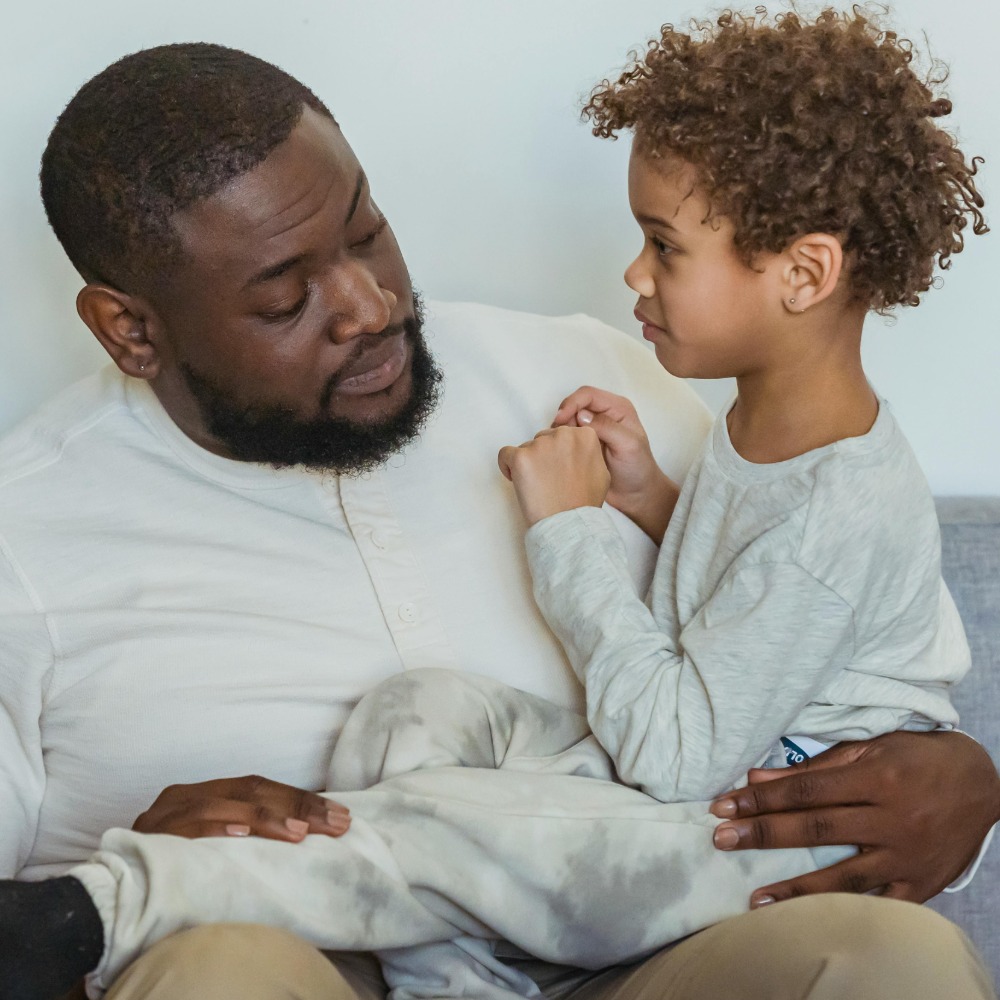
At some stage, your family will experience a loss. This means you’ll have to talk to your children about death, which can be daunting. These conversations should be handled with care so that they don’t get confused and don’t feel overwhelmed. Here’s how Clinical Social Worker, S’lindile Thabede, recommends approaching this sensitive topic.
1. Be clear, open and honest
Understandably, children will have a lot of questions, especially if this is their first time losing a loved one. Instead of telling made-up stories in an attempt to soften the blow, be honest with them. ‘Use straightforward, age-appropriate language, such as “died” instead of euphemisms,’ advises S’lindile. Substituting words, such as saying ‘gone to sleep’, and skirting around the truth can make them more confused. This is still a teachable moment, even if it is a difficult one.
2. Let them lead the way
Of course, children can and should be protected from many of the intricate details surrounding the death of someone they care about. So, don’t bombard them with information they don’t want or might not be able to digest. ‘Follow the pace your child is setting and only answer what they ask without too much elaboration,’ says S’lindile. They can be given more details – or more pieces of the puzzle – at a later stage when they are ready to receive it.
3. Offer your reassurance
It’s totally normal for children to feel overwhelmed by death and to feel fearful about how it will affect them and their lives. It’s the caregiver’s job to give them the reassurance they need. ‘Ease their fears by explaining who will care for them,’ explains S’lindile. ‘It’s also important to keep their routines stable.’ Also, letting your child know what they can expect, such as the end-of-life customs, can help them to feel more prepared and less anxious.
4. Encourage emotional expression
During a traumatic time, it’s important to allow your children to express themselves. ‘Support their feelings,’ encourages S’lindile. Depending on their age, they might not have the vocabulary to express themselves verbally. ‘Suggest other outlets for their emotions, such as drawing,’ she says. If you think your child could benefit from talking to a professional, 21st Century Funerals offers grief counselling to family members of the deceased as one of our many compassionate lifestyle benefits.
5. Keep conversations open
Initially, children might be in a state of shock and not have too many questions. For this reason, it’s important to keep the conversation open long-term. ‘Be patient – children might want to revisit the topic over time as they process their grief,’ says S’lindile. Their understanding of death might also develop as they age, leading to more in-depth questions requiring more detailed responses. Be prepared for this – it’s crucial for caregivers to help demystify this inevitable life event and be a source of comfort.


